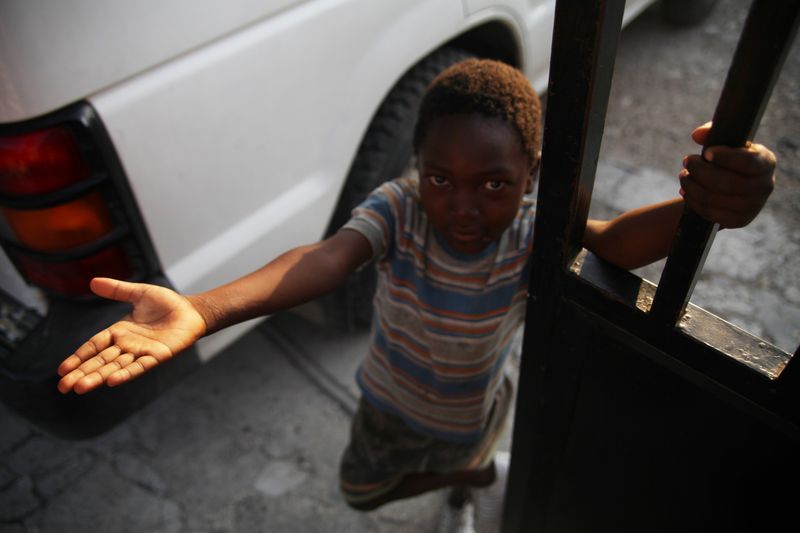I thought that things would be different in Port-au-Prince this trip. But, despite the millions of dollars donated, things are very much the same as they were in February. In fact, they seem worse. In February, I saw the makeshift homes of plastic and sheets that people had built in the first weeks after the earthquake as a sign of resilience. I was amazed at how quickly people had come together to form new communities, on their own. But now, the tents and tarps are a depressing sight. These structures were not supposed to have been permanent, but now, they are fixed, like a blight across the city. In February, people were hopeful. One man in the Sou Piste tent city told me that he knew that things would get better quickly because foreigners had taken over the country. But now the people sigh with resignation as they say the same thing—"This is it for us. The government, the U.N., the aid agencies, they have all forgotten us. We are going to live this way for years to come."
More people have crowded into the park space in Champs de Mars, living one atop the other on islands separated by littered roads and grimy rivulets of dirty water and human waste. All you can see of the statue of Neg Mawon, the freed slave, the symbol of Haiti's independence, is his head blowing the conch shell. Everything else is hidden by blue and gray tarp and billowing sheets. And on this day, someone has draped a T-shirt on the statue's head to dry, so that even that is covered.
But the worst thing for me is the begging. In February, though people were obviously very much in need, nobody asked me for a thing. In Sou Piste, I had conversations with children in a mixture of French and Kreyol, because few could speak any English. Now, many of them know the same six English words: "Hey you! Give me one dollar!" Over and over I was greeted with this phrase. One evening, by the shattered shell of a church, a boy came up to me and simply stuck his hand out. "What is that?" I asked him in French, holding my own hand out. "What does that mean?" He said nothing, and simply raised his upturned palm closer to my face.
One afternoon, I told a group of children that they should at least say hello first. "You should introduce yourself, and then I introduce myself, and we shake hands, like this," I said, taking a little boy's hand. And then you say, "Welcome to Haiti," added our fixer, Andre. The children laughed. "And you should be proud of who you are," I added. "You don't want people's first impression of you to be that you are simply beggars."
A few days later, we visited Carrefour Feuilles, a slum high above the city. Jean Flaubert, a community leader, explained that the aid organizations are not really helping the Haitians to help themselves. Instead, they are setting up a system of dependency. People have to beg for the little help they can get. "These organizations, when they say they are coming to help, they are not really coming to help." Flaubert said. "They are making us into slaves."
